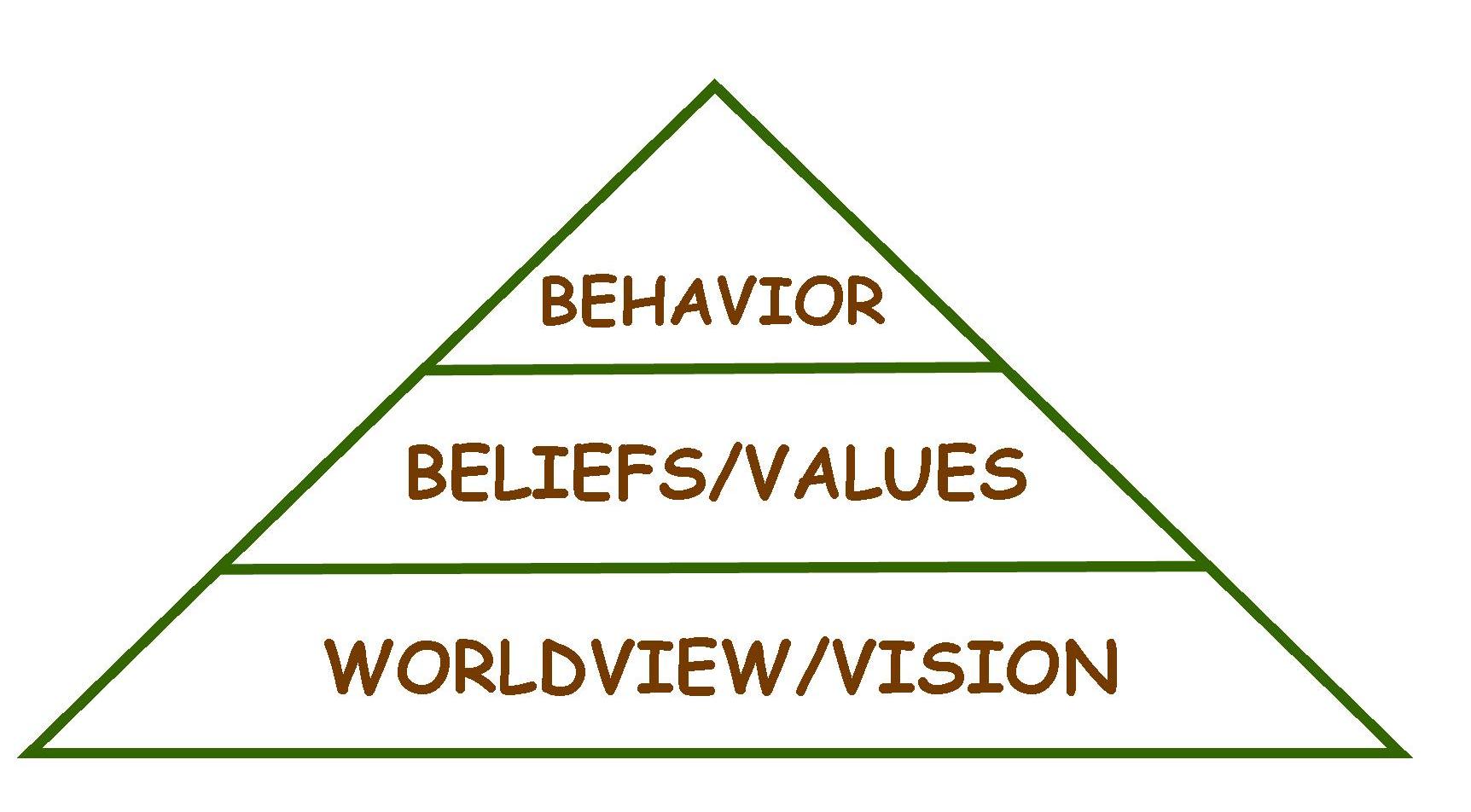Early in our daughter’s freshman year in college, her professor gave the students in her class an assignment to write an inquiry paper on the subject of their choosing. She had always been a good student, so she took the assignment seriously, did the work and turned in the paper.
Expecting her usual high grade, my daughter was very distressed to see red marks all over her paper. Once she was over the shock, she realized the marks had nothing to do with sentence structure or grammar or any rules of composition for an inquiry paper. All of her professor’s red correction marks stemmed from his total disagreement with what she had written.
Disappointed, my daughter realized that she and her professor had different belief systems, or worldviews. She felt that this clash of opposing worldviews necessitated a defense of her belief system, but she wanted to respond in a wise and respectful way.
Fortunately, several years before this incident, our family had attended a worldview camp where we learned to identify our own worldview and discern the worldviews of others. The camp was based on the premise that if we understand the times, we will know what to do. Understanding worldviews would help us to understand the times and hopefully, know how to respond when met with worldviews different from our own.
At the camp, our instructor showed a pyramid similar to the one below:

We learned that our worldview is the lens through which we see the world. My last blog entry addressed the importance of having a vision for immediate situations as well as for the long-term future. There is an undeniable connection between what we believe about the future and how we act. Our beliefs affect our thoughts, our actions and our results.
Some people view the world through the eyes of secular humanism, an approach to ethics based on moral relativism, while others view the world through the eyes of Biblical Christianity, with an ethics approach based on moral absolutes. There are many other worldviews. One’s worldview is the foundation for answers to questions like, “Does God exist?” or “Are there moral absolutes?”
Our values are the principles by which we live. These values flow from our worldview. If one espouses secular humanism, many principles that person adheres to would be incompatible with those of a Biblical Christian. For example, if one believes that right and wrong are determined by the individual or by circumstances, that person’s decisions and actions will reflect that belief. Likewise, if one believes that God has established right and wrong for everyone, then that person’s decisions and actions will flow from a desire to know what God has said.
As we think about our vision for our future, we want to base it on a firm foundation. This foundation is our worldview.
As we develop our vision, and help those we love develop theirs, it is important for us to understand and clarify our own worldview and values because our actions and reactions stem from them—whether consciously or not. Teaching these concepts to the younger generation through word and deed will help them to be prepared and have clarity of mind. When confronted with views contrary to their own, as happened to our daughter in college, they will be better equipped and more confident. They also will be more likely to adhere to their beliefs.
As you sit with those you love, ask questions such as these that I learned at the worldview camp. Start with a less controversial topic, like the importance of learning to swim, and ask:
“What do you mean by (topic)?” In this case, have them define what it means to learn to swim.
Then ask, “What do you believe about (topic)?” Have them tell you what they believe about learning to swim. Ask them if they think it is important.
Then ask, “How do you know what you believe about (topic) is true? What is the source of your information?”
If you hold such conversations in a non-confrontational and encouraging manner, you will become more aware of your loved ones’ beliefs, and you will teach invaluable thinking skills in the process. These skills will help them solidify their beliefs, which will help them determine their course of action. If modification or strengthening of a worldview is needed, you can carefully and prayerfully instruct them.
When our daughter called me in distress over the upsetting red marks, she asked what I thought she should do. I asked her what they had taught her at the worldview camp. She said they would tell her to talk to her professor respectfully and to ask the questions she had learned to challenge his thinking. So she did just that. Her professor conceded, and mutual respect was born between the two.
Her classmates told me later that over the course of the semester, the discussions between our daughter and the professor became much like a ping-pong match. He would make a point and she would counter by asking questions such as, “How do you know that is true?” The heads of the students would turn back and forth as the match continued, increasingly in a friendly manner as the semester progressed. The students said their own worldviews were either modified or strengthened as they listened. And by our daughter’s senior year, she and her professor had become steadfast friends.
This story could have ended differently had our daughter not been firm in her worldview, and had she not responded by engaging her professor in a dialogue.
Our lives, our futures, and even our relationships with others are built on the foundation of our worldview. As we examine our worldview relative to the variety of issues we face in life, it is wise to be aware of how we know that what we believe is true.
Take time this month to think about your worldview and how it influences your vision for your life. The New Year is an excellent time to evaluate your vision for your future. Take time as well to sit with your loved ones and discuss the questions I have mentioned above. It will be time well spent.

